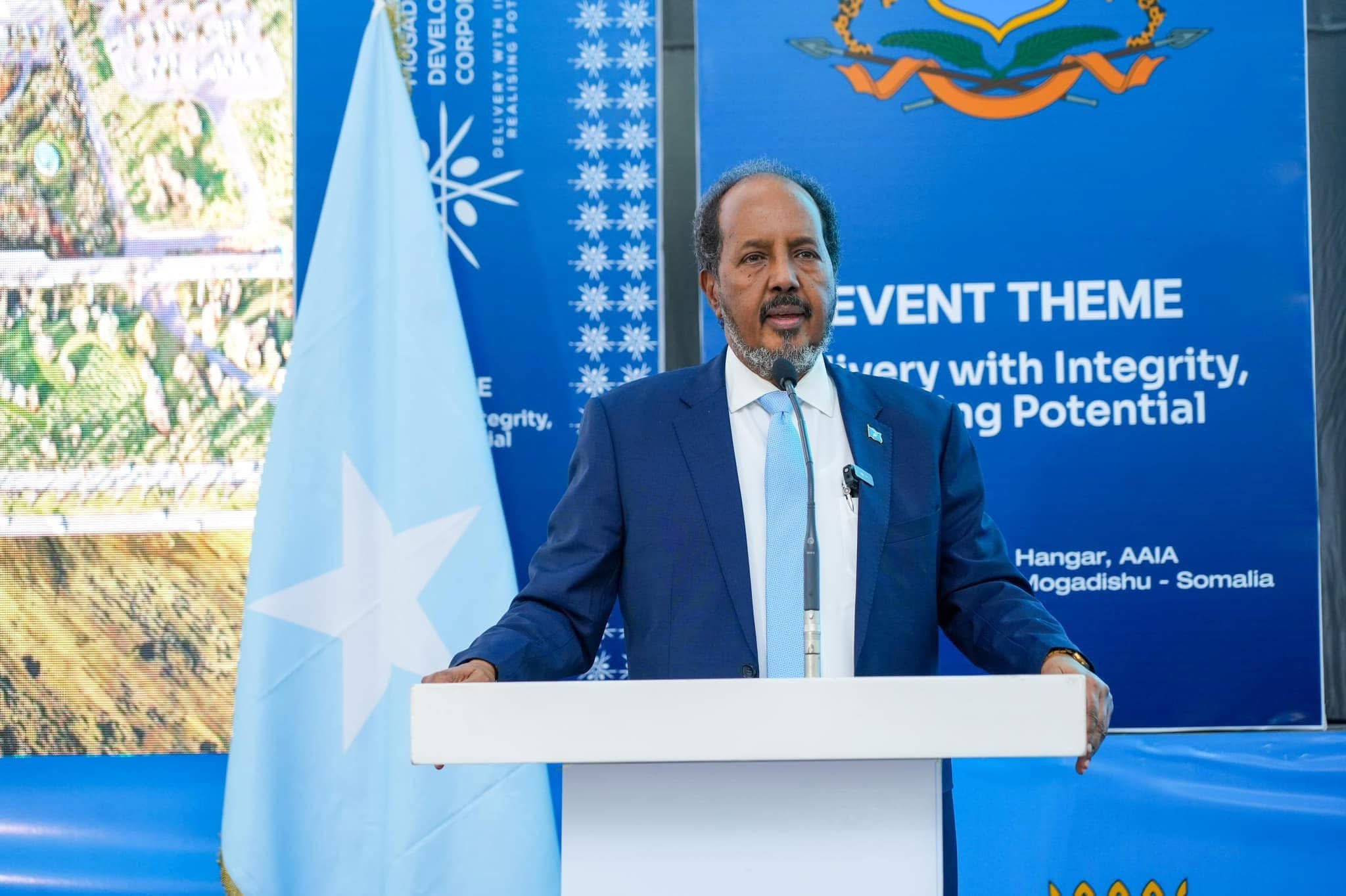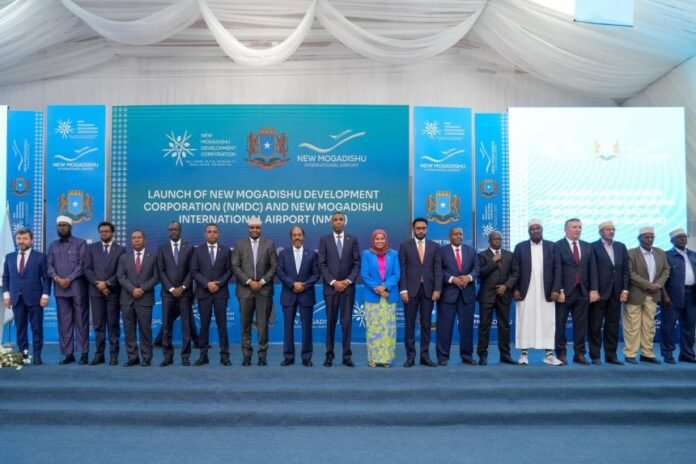Somalia stands on the brink of a transformative era with the launch of the “New Mogadishu Project.” This ambitious initiative promises to reshape the capital into a well-planned, environmentally friendly, and decongested city, offering a brighter future for its residents. Spearheaded by the President of the Federal Republic of Somalia, His Excellency Dr. Hassan Sheikh Mohamud, the project encompasses the construction of a modern airport, an international port, and the development of a Mogadishu Economic Zone.
Envisioned as a catalyst for economic growth and urban development, the New Mogadishu Project is poised to enhance connectivity, foster international trade, and create numerous job opportunities for Somali youth. This bold venture not only aims to elevate the infrastructure of the capital but also to position Mogadishu as a key economic hub in the region. By merging traditional values with modern urban planning, the project seeks to provide a sustainable and prosperous environment for current and future generations.
As Somalia embarks on this journey towards urban renaissance, the New Mogadishu Project stands as a prove to the nation’s resilience and aspirations for a brighter future. With the support of both Somali and international investors, this visionary endeavor heralds a new chapter in the country’s history, promising a more vibrant, interconnected, and thriving Mogadishu.
The New Mogadishu Project is more than just an infrastructural development, it’s a visionary initiative designed to propel Somalia into a new era of economic growth and urban modernization. At the heart of this project is a commitment to creating a city that reflects the aspirations and potential of the Somali people.
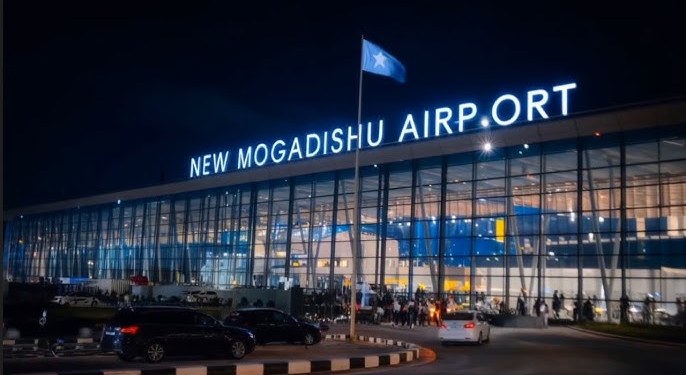
The primary goal of the New Mogadishu Project is to develop a modern, well-planned city that can serve as a beacon of progress for the entire nation. Key objectives include economic growth, urban modernization, enhanced connectivity, and job creation. The development of a state-of-the-art airport, international port, and economic zone aims to boost trade, attract investment, and create jobs. Emphasizing sustainability and advanced urban planning ensures a clean, green, and efficient city. Improving domestic and international travel and trade links better integrates Somalia into the global economy. Providing employment opportunities for the youth addresses one of the critical challenges facing the nation.
President Hassan Sheikh Mohamud has highlighted the transformative potential of the New Mogadishu Project, emphasizing its importance for the country’s future. “We want this project to be one that benefits the Somali people together,” he stated, underlining the inclusive nature of this endeavor. Governor Mohamed Ahmed Amiir and other key figures have echoed these sentiments, recognizing the project as a cornerstone for rebuilding and rejuvenating Mogadishu. They have emphasized that the initiative is not just about physical infrastructure but about creating a vibrant economic ecosystem that fosters innovation, growth, and prosperity.
The New Mogadishu Project is expected to be a game-changer for Somalia’s economy, bringing a myriad of benefits that will ripple through various sectors. This bold initiative is set to revitalize the capital, making it a magnet for investment and a hub for economic activity.
The project aims to create a robust economic infrastructure that will support sustainable growth. Some of the key economic impacts include job creation, increased trade, attracting investment, and infrastructure development. The construction of the modern airport, international port, and economic zone is anticipated to create thousands of jobs, providing much-needed employment opportunities for Somali youth and contributing to poverty alleviation. By enhancing the capabilities of Mogadishu’s port and airport, the project will facilitate smoother and more efficient trade routes, boosting both imports and exports. The establishment of the Mogadishu Economic Zone is designed to attract both local and international investors, fostering a business-friendly environment that encourages entrepreneurship and innovation. Improved infrastructure will not only enhance the quality of life for residents but also make Mogadishu a more attractive destination for businesses and tourists alike.
One of the most significant aspects of the New Mogadishu Project is its potential to address the high unemployment rate among Somali youth. By creating new job opportunities, the project aims to harness the potential of the younger generation, empowering them to contribute to the country’s growth and development. The New Mogadishu Project is expected to stimulate economic growth by creating a more connected and efficient urban environment. The development of the airport and port will enhance Mogadishu’s role as a logistical and commercial hub, facilitating trade and commerce on a larger scale. Moreover, the project’s focus on sustainability and modern urban planning will ensure long-term economic resilience and environmental stewardship.
In summary, the New Mogadishu Project is poised to bring about profound economic changes, driving growth, creating jobs, and positioning Mogadishu as a critical player in the regional and global economy.
The New Mogadishu Project aims to bring substantial improvements to the city’s infrastructure, making it a model of modern urban development. This ambitious initiative includes the construction of a state-of-the-art airport, an international port, and a comprehensive Mogadishu Economic Zone. These developments are not only expected to enhance the city’s functionality but also to position Mogadishu as a key logistical and commercial hub in the region.
The modern airport, being constructed in the northern part of Mogadishu, particularly in the Haawaay area, is designed to handle a significant increase in both domestic and international flights. This new facility will provide much-needed relief to the existing Aden Adde Airport, which currently manages 60% of the country’s air traffic. With advanced infrastructure and services, the new airport is anticipated to double the number of flights and significantly improve aviation services in Somalia.
Similarly, the construction of a new international port, located 7 kilometers from the airport, aims to boost Somalia’s maritime trade capabilities. This port will facilitate smoother and more efficient handling of goods, contributing to enhanced trade routes both within the country and with international partners. The integration of the port and airport within the Mogadishu Economic Zone will create a synergistic effect, further bolstering the city’s role as a pivotal trade and logistics center.
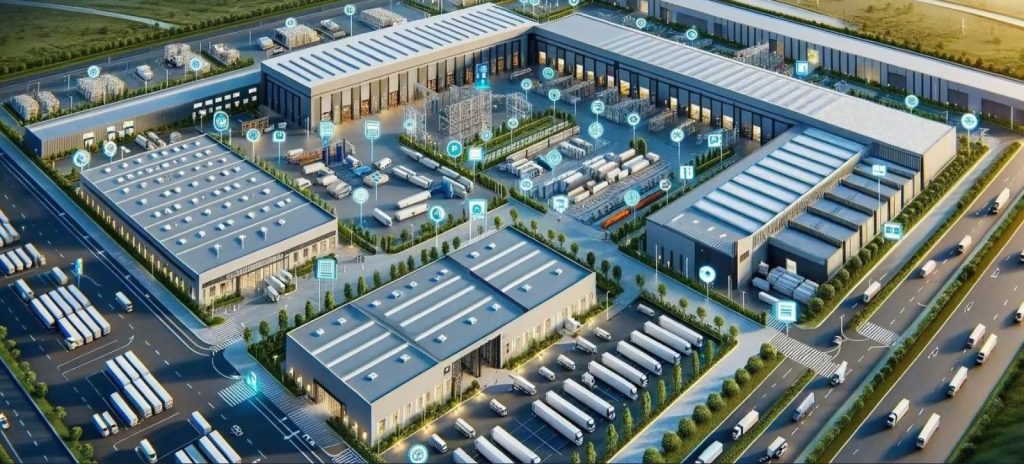
A key feature of the New Mogadishu Project is the development of an economic zone that will house various industries and businesses. This zone is expected to attract significant local and international investments, fostering a vibrant economic ecosystem. The project also includes the construction of a major road connecting the new and existing parts of Mogadishu, passing through the Karan district. This road will be the longest built since the country’s civil unrest, facilitating the transportation of goods and services across the region.
Overall, the infrastructure development under the New Mogadishu Project is designed to create a modern, efficient, and sustainable urban environment. These advancements are expected to not only improve the quality of life for Mogadishu’s residents but also to attract businesses, investors, and tourists, further solidifying the city’s status as a key economic hub in the Horn of Africa.
The New Mogadishu Project is receiving substantial financial support from both Somali and international investors. This significant investment underscores the project’s potential to transform Mogadishu into a thriving economic and trade hub. The estimated cost for developing the modern airport is around $600 million, with the funding sourced from a mix of Somali entrepreneurs and foreign businessmen, reflecting a strong commitment to the country’s growth.
A detailed breakdown of the project’s financing reveals a clear strategy to ensure its sustainability and effectiveness. The construction of the new road connecting the old and new Mogadishu, which runs through the Karan district, will cost approximately $100 million. This road is a critical component of the project, designed to facilitate the efficient transportation of goods across the region, further integrating Mogadishu’s new infrastructure with the existing urban fabric.
Investors are particularly drawn to the Mogadishu Economic Zone, which promises to be a lucrative area for business operations and industrial activities. This zone is expected to attract a diverse range of companies, from logistics and manufacturing to technology and services, creating a dynamic business environment. The strong financial backing and detailed planning of the New Mogadishu Project demonstrate a robust foundation for its success, laying the groundwork for substantial economic benefits and enhanced urban development.
the financial aspects of the New Mogadishu Project highlight the significant investment and strategic planning involved in transforming Mogadishu into a modern, economically vibrant city. The commitment from both local and international investors shows the project’s potential to drive substantial economic growth and urban modernization in Somalia.
The New Mogadishu Project promises to significantly enhance connectivity between Somalia and the rest of the world, positioning Mogadishu as a key node in international trade and travel. By building modern infrastructure that links the city more effectively to global networks, the project aims to facilitate smoother, more efficient movement of goods and people.
With the development of a state-of-the-art airport in the Haawaay area, Mogadishu is set to become a major aviation hub. This new airport will relieve pressure from the existing Aden Adde Airport, which currently handles the majority of the country’s flights. By doubling the capacity for air traffic, the new airport will improve both domestic and international connectivity, enabling more frequent and diverse flight routes. This improvement is expected to make travel more convenient for passengers and more efficient for cargo, fostering greater economic interaction and cultural exchange.
Similarly, the new international port, located just 7 kilometers from the airport, is designed to enhance maritime trade. The proximity of these two critical infrastructures will enable seamless transfer of goods between air and sea transport, reducing logistical bottlenecks and improving the speed and reliability of trade routes. This integration will not only benefit Somali businesses by providing easier access to international markets but also attract foreign companies looking for efficient logistics solutions in the Horn of Africa.
The creation of the Mogadishu Economic Zone is another crucial element of the project, aimed at boosting trade and investment. This zone will house various industries and enterprises, creating a concentrated area of economic activity that will draw both local and international businesses. The enhanced infrastructure and business-friendly environment are expected to make Mogadishu a more attractive destination for investors, further integrating the city into the global economy.
The New Mogadishu Project is set to revolutionize connectivity in Somalia. By improving aviation and maritime infrastructure and establishing an economic zone, the project will facilitate more robust trade and travel links, driving economic growth and opening new opportunities for the Somali people. These developments will position Mogadishu as a pivotal player in regional and global trade networks, fostering greater economic integration and prosperity.
The New Mogadishu Project is expected to have a profound regional and global impact, positioning Mogadishu as a central player in international trade and investment. By enhancing the city’s infrastructure and economic capabilities, the project aims to foster stronger relationships with neighboring countries and attract significant global interest.
One of the key benefits of the New Mogadishu Project is its potential to improve Somalia’s ties with its neighbors. The modern airport and international port will facilitate smoother and more efficient trade routes, enhancing connectivity and cooperation with countries in the Horn of Africa and beyond. This improved infrastructure will not only boost Somalia’s own economy but also contribute to regional economic integration, creating a more interconnected and prosperous East Africa.
The project’s emphasis on developing the Mogadishu Economic Zone further highlights its regional significance. This zone is expected to attract a diverse range of international businesses, creating a dynamic hub of economic activity. The influx of foreign investment will bring new technologies, expertise, and opportunities to Somalia, fostering innovation and growth. By establishing Mogadishu as a key economic center, the project aims to make the city a focal point for international trade and investment in the region.
Globally, the New Mogadishu Project is poised to enhance Somalia’s standing on the international stage. The improved infrastructure and business environment will make Mogadishu a more attractive destination for international investors and businesses. This increased interest and investment will help integrate Somalia into the global economy, opening new avenues for trade and cooperation.
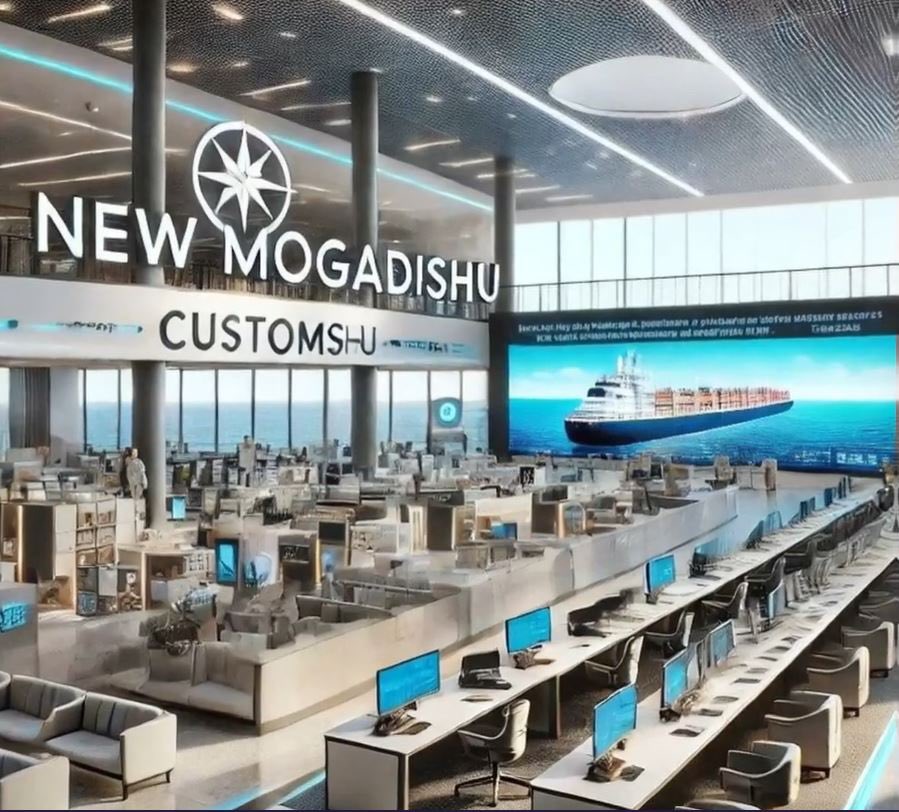
The project also has significant implications for Somalia’s global relationships. By demonstrating a commitment to modernizing and improving its infrastructure, Somalia is sending a strong signal to the international community about its readiness to engage and collaborate. This proactive approach is likely to foster stronger diplomatic and economic ties with countries around the world, further supporting Somalia’s development goals.
The New Mogadishu Project is not just about transforming the city—it is about positioning Mogadishu as a key player in regional and global trade networks. By enhancing connectivity, attracting international investment, and fostering stronger regional relationships, the project aims to drive economic growth and create new opportunities for Somalia and its neighbors.
The New Mogadishu Project promises to deliver a wide range of community and social benefits that will significantly improve the quality of life for residents. By creating a well-planned, environmentally friendly, and decongested city, the project aims to address several social challenges and create a more vibrant urban environment.
One of the primary community benefits of the project is the creation of job opportunities. With the development of new infrastructure such as the airport, port, and economic zone, numerous jobs will be generated in construction, operations, and various industries. This influx of employment opportunities is particularly crucial for Somali youth, who often face high unemployment rates. By providing stable and well-paying jobs, the project aims to empower the younger generation and reduce poverty.
The project also emphasizes the importance of sustainability and environmental friendliness. By incorporating green urban planning and sustainable practices, the New Mogadishu Project seeks to create a cleaner and healthier city. This focus on sustainability will not only improve the environmental conditions but also enhance the overall well-being of the residents. Green spaces, efficient waste management systems, and eco-friendly buildings are some of the key features that will contribute to a more livable city.
Improving the quality of infrastructure is another significant community benefit. The construction of modern roads, transportation systems, and public facilities will enhance accessibility and convenience for residents. This improved infrastructure will make it easier for people to commute, access essential services, and engage in economic activities. Better connectivity within the city and to other regions will also foster a sense of community and cohesion among residents.
The project also aims to enhance the social fabric of Mogadishu by creating public spaces and facilities that promote community engagement. Parks, recreational areas, and cultural centers will provide spaces for residents to gather, socialize, and participate in various activities. These public spaces will help strengthen community bonds and foster a sense of belonging among the residents.
The New Mogadishu Project represents a bold and visionary initiative aimed at transforming Somalia’s capital into a modern, well-planned, and economically vibrant city. With the comprehensive development of a state-of-the-art airport, an international port, and the Mogadishu Economic Zone, this project stands as a testament to the country’s resilience and forward-thinking approach.
The anticipated economic benefits, including job creation, increased trade, and enhanced connectivity, promise to drive substantial growth and development. By addressing key challenges such as unemployment and inadequate infrastructure, the New Mogadishu Project aims to create a more prosperous and sustainable urban environment for all residents.
Furthermore, the project’s emphasis on sustainability and environmental friendliness underscores Somalia’s commitment to creating a cleaner, healthier, and more livable city. The integration of advanced urban planning and green practices ensures that Mogadishu will not only meet the needs of its current residents but also pave the way for future generations.
As the project progresses, the strong support from both Somali and international investors highlights the global confidence in Somalia’s potential. The New Mogadishu Project is poised to position the capital as a key economic hub in the region, fostering greater international cooperation and investment.
